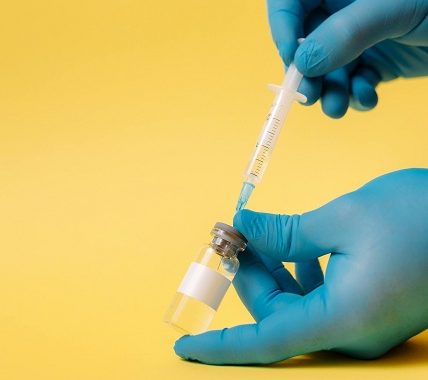
Ensuring the health and well-being of our furry companions is a responsibility that every pet owner should prioritize. One crucial aspect of pet care is keeping up with vaccinations to protect our dogs from preventable diseases. In this article, we will explore the potential consequences of not vaccinating your dog and address common concerns surrounding the topic.
Is It Illegal to Not Vaccinate Your Dog?
While there is no universal law mandating dog vaccinations, many local jurisdictions and countries have specific regulations in place.
It’s essential for pet owners to research and comply with their region’s requirements regarding canine vaccinations. Neglecting to vaccinate your dog could lead to legal consequences, including fines or restrictions on pet ownership.
What Happens If Your Dog Is Not Vaccinated at Home?
When your dog is not vaccinated at home, it faces heightened susceptibility to serious diseases like parvovirus, distemper, and rabies. These illnesses can rapidly spread within unvaccinated dog populations, resulting in community-wide outbreaks that pose a threat to other pets.
Parvovirus, known for causing severe gastrointestinal issues, can be particularly devastating. Distemper affects a dog’s respiratory, gastrointestinal, and nervous systems, while rabies poses a significant public health risk.
Failure to vaccinate not only endangers your dog’s health but contributes to the potential transmission of these diseases to other animals. Vaccination is a simple yet effective measure to protect your dog and promote overall community well-being.
My Dog Hasn’t Been Vaccinated in Years – Consequences:
An unvaccinated dog faces severe consequences, increasing the likelihood of contracting and spreading infectious diseases due to a compromised immune system. The prolonged absence of vaccinations puts the pet at unnecessary risk, as preventable illnesses become more threatening.
Furthermore, the introduction of an unvaccinated dog to a vaccinated one poses significant risks. Even vaccinated dogs are vulnerable to diseases carried by their unvaccinated counterparts, potentially compromising the efficacy of their immunizations.
Responsible pet ownership involves maintaining regular vaccination schedules to safeguard the health of your dog and the canine community at large, mitigating the potential for outbreaks and ensuring the well-being of all furry companions.
How Long Can a Dog Go Without Shots?
The longevity of a dog without shots hinges on several factors, such as age, health, and environmental disease prevalence.
Puppies typically require a series of vaccinations during their early months, forming a foundation for lifelong immunity. As dogs age, booster shots become essential to reinforce their immune response.
The specific duration a dog can go without shots varies, but adherence to veterinarians’ recommended vaccination schedules is paramount. These schedules are designed to provide timely protection against common and potentially fatal diseases.
Neglecting vaccinations may expose dogs to unnecessary health risks, making it imperative for pet owners to prioritize and adhere to vaccination protocols for the overall well-being of their furry companions.
�
My Dog Has Never Had Shots – Addressing the Issue:
If your dog has never received vaccinations, it’s imperative to take immediate action to safeguard their health. Schedule a consultation with a veterinarian to create a personalized vaccination plan based on your dog’s unique requirements and potential exposure risks.
Whether your canine companion is a puppy or an adult, catching up on shots is a vital step in preventing the transmission of contagious diseases. A veterinarian can assess your dog’s health status and recommend essential vaccinations such as rabies, distemper, and parvovirus.
Timely vaccinations not only protect your pet but also contribute to the overall well-being of the broader canine community by reducing the risk of disease outbreaks. Don’t delay – prioritize your dog’s health today by ensuring they receive the necessary vaccinations.
Are Unvaccinated Dogs Dangerous to Humans?
Unvaccinated dogs can indeed be dangerous to humans due to the potential transmission of zoonotic diseases. Rabies is a significant concern, and if an unvaccinated dog contracts the virus, it can transmit it to humans through bites or scratches.
Rabies is a fatal disease that affects the central nervous system, making prompt vaccination crucial. Additionally, other zoonotic diseases like leptospirosis and brucellosis can be transmitted from dogs to humans.
Ensuring your dog is up-to-date on vaccinations not only preserves their health but also acts as a vital preventive measure, protecting both the canine and human populations from potentially severe health risks.
Regular veterinary check-ups and vaccinations are essential for fostering a safe and healthy environment for pets and their owners alike.
Unvaccinated Cats Dangerous to Humans:
Expanding on the topic of unvaccinated cats and their potential risks to humans, it is essential to delve into specific diseases and emphasize the importance of vaccinating feline companions. Toxoplasmosis, a disease caused by the Toxoplasma gondii parasite, is one such concern. Cats can become carriers of this parasite, and when they shed the parasite’s oocysts through their feces, it becomes a potential threat to humans.
Toxoplasmosis is particularly concerning for pregnant women and individuals with weakened immune systems. In pregnant women, the infection can lead to severe complications such as congenital disabilities in the developing fetus. Those with compromised immune systems, such as individuals undergoing chemotherapy or people with HIV/AIDS, are at an increased risk of severe illness if infected.
Highlighting the importance of cat vaccinations becomes crucial in preventing the transmission of diseases like toxoplasmosis. Routine veterinary care, including vaccinations, can significantly reduce the likelihood of cats carrying and shedding infectious agents. Encouraging cat owners to consult with their veterinarians and adhere to recommended vaccination schedules not only protects the health of the feline companions but also safeguards the well-being of the entire household.
Incorporating information about unvaccinated cats and their potential impact on human health into your content provides a holistic approach to responsible pet ownership. Addressing both dogs and cats showcases a commitment to fostering a safe environment for pets and their owners, contributing to the overall health and harmony of households. From an SEO perspective, this additional information further establishes your website as a comprehensive resource on pet care, enhancing its authority and relevance in search engine rankings.
Conclusion:
In conclusion, neglecting to vaccinate your dog can have serious consequences for its health, the health of other pets, and potentially even legal implications. Responsible pet ownership involves staying informed about local vaccination requirements, maintaining a regular vaccination schedule, and consulting with a veterinarian to ensure your dog receives the appropriate immunizations. By prioritizing your dog’s health, you contribute to a safer and healthier community for all pets and their owners.
Further Reading:
Why vaccinating your pet is important?
